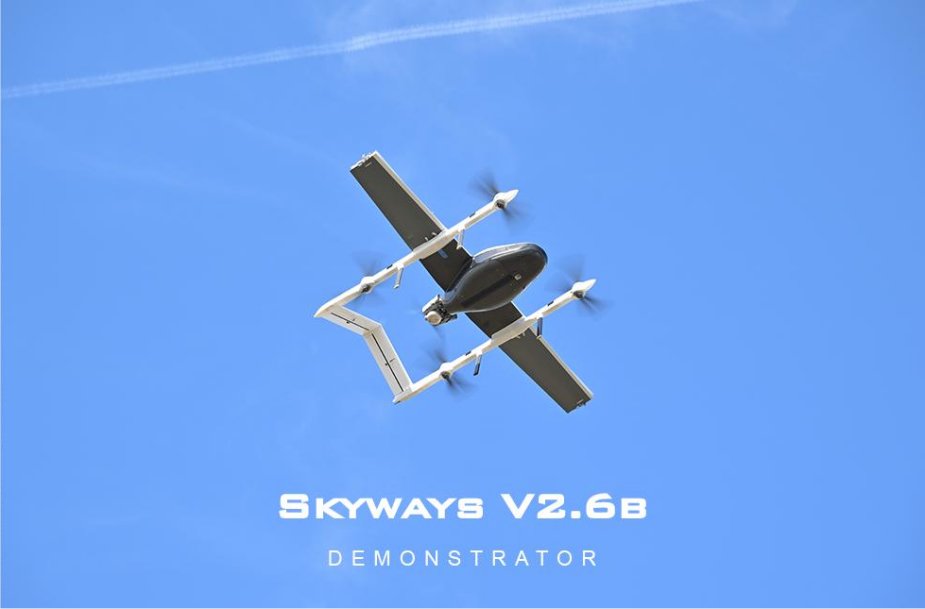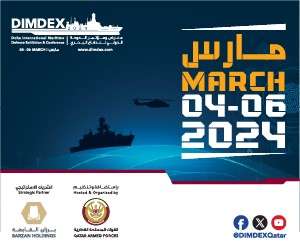According to information published by the US DoD on December 19, 2022, the Naval Air Warfare Center Aircraft Division (NAWCAD) recently demonstrated multiple unmanned systems in a first-of-its-kind mission to move supplies to ships at sea without the use of manned aircraft during an event at Naval Air Station Patuxent River in St. Inigoes, Maryland.
Follow Navy Recognition on Google News at this link
 Skyways V2.6B Unmanned aircraft system. (Picture source: US Navy)
Skyways V2.6B Unmanned aircraft system. (Picture source: US Navy)
The demo, held in collaboration with the Small Tactical Unmanned Aircraft Systems program (PMA-263), employed unmanned vehicles, including the to transport cargo weighing less than 50 lbs., which accounts for 90% of Navy logistics deliveries.
During the event, industry partners Skyways Air Transportation, Inc., and Martin UAV operated their unmanned systems through long-range flights from ship-to-ship, ship-to-shore, and shore-to-ship situations, carrying a variety of objects to mimic critical supplies. Both systems successfully delivered cargo over 200 nautical miles onto a moving ship underway.
The unmanned systems under consideration are capable of vertical take-off-and-landing to operate from most naval ships at sea and stations ashore, as well as systems that do not require dedicated launch and recovery equipment.
NAWCAD acquired the original Blue Water UAS prototype in 2019 to demonstrate long-range unmanned naval ship-to-ship and ship-to-shore cargo transport. Navy test pilots and engineers have since worked with industry partners to develop a system that best meets maritime requirements.
She selected the Group-3 Skyways platform as the Texas-based company’s small UAS has the necessary size, payload capacity, and range potential to function in a maritime environment and allow incremental test by NAWCAD with supporting technologies that might ultimately meet the needs of MSC.



